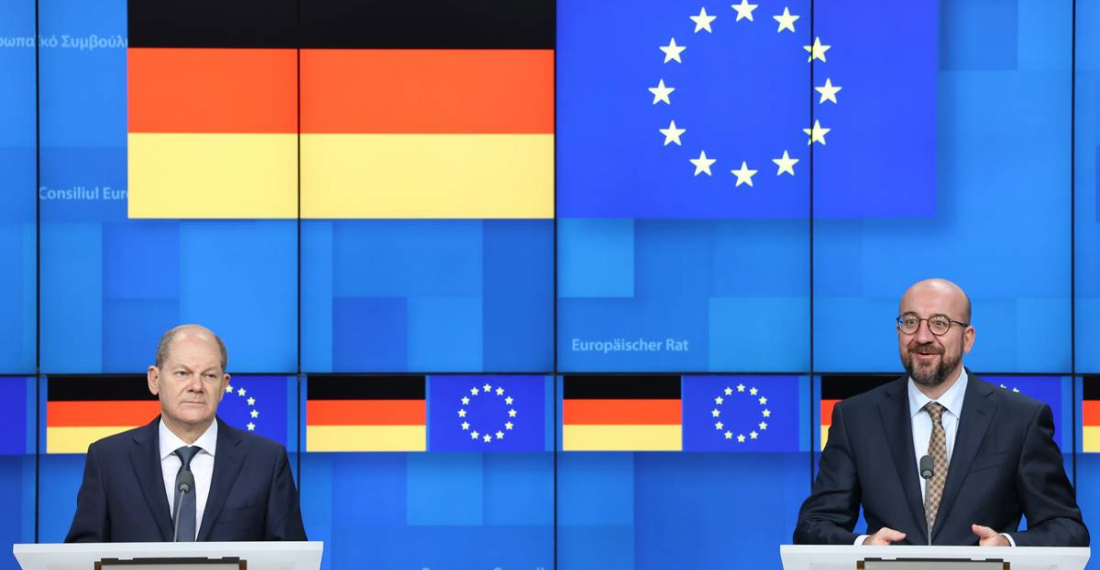The new Chancellor of Germany, Olaf Scholz, made his first overseas trip on Friday, visiting Paris for a meeting with French president Emanuel Macron, and later making his first official visit to Brussels as the new leader of Germany to meet with the heads of the EU institutions.
The Franco-German alliance has been the motor that has driven European policy in the last decades and Sholz visit to Paris sent a sign that this will continue. Europe was very much at the heart of the discussion between the two leaders.
The two men, who first met in Hamburg, Germany, in 2014, held a working lunch at the presidential palace that reflected “the essential need to meet quickly,” as Mr. Scholz put it afterward at a 20-minute news conference. “Our first exchanges demonstrated a solid convergence of views,” Mr. Macron said.
Their tone was serious but convivial, with Mr. Macron referring repeatedly to “dear Olaf” and using the less formal “tu,” rather than “vous,” when addressing the chancellor. At the end of the news conference they fist-bumped — a far cry from the image of President François Mitterrand and Chancellor Helmut Kohl holding hands on the battlefield of Verdun in 1984, but a Covid-era indication of friendship.
In Brussels, Chancellor Scholz met with the president of the European Council, Charles Michel.
Speaking after the meeting Michel said,
We had the opportunity today to discuss several topics on the agenda of the European Council next week and over the coming months.
First, we are convinced that the rule of law and our fundamental democratic principles are at the core of the European project, and it is very important to fight to promote our fundamental values and principles.
Second, prosperity and the twin transitions, climate change and the digital revolution, are important common challenges. We need to cooperate and coordinate to address those challenges and make them opportunities for more growth, more economic development, more innovation and more jobs, everywhere in Europe.
Finally, on security and stability, we understand very well that there are very serious challenges. That is why it is important to be engaged, and not only in Europe’s neighbourhood: it is important to develop an ambitious international agenda. On a regular basis, we have the opportunity at the level of the European Council to exchange views and to develop what I call the ‘collective intelligence’ of the European Council and of the European Union. We work together to identify our common goals and the tools we are ready to use to promote our values and defend our interests and the interests of our citizens everywhere in Europe.






